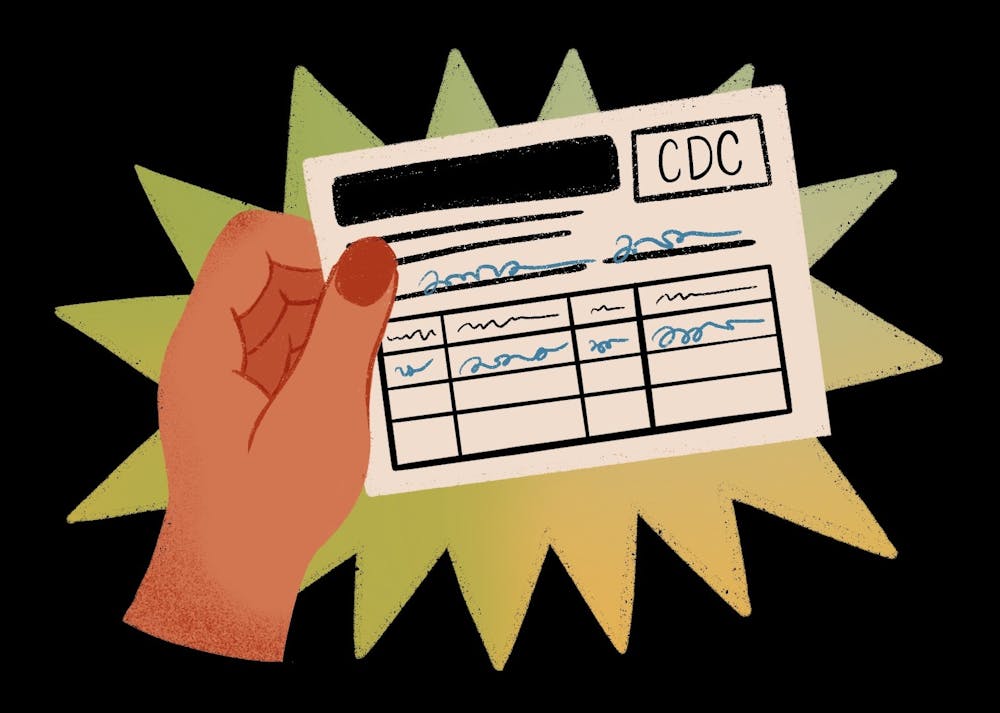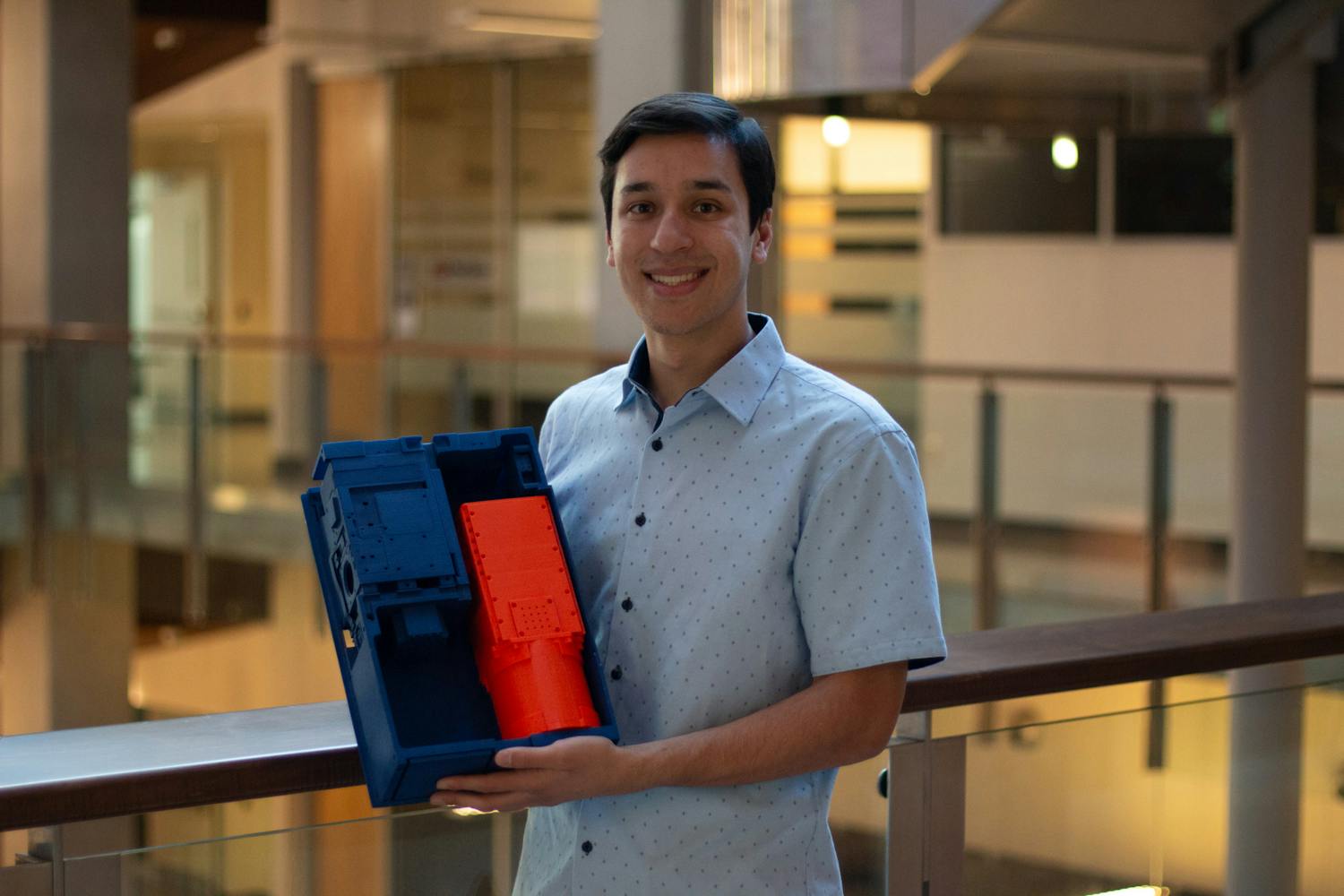ASU recently announced its plan to reopen for the Fall 2021 semester, where most classes will be delivered in person, however, one thing remains unclear: whether or not ASU will require students, faculty and staff to be vaccinated against COVID-19.
Despite a steady decline in coronavirus cases in the ASU community, many students and faculty are still hesitant about returning in person.
Coming to a heavily populated campus without ensuring that everyone is vaccinated is irresponsible and poses an extremely high risk of infection, yet ASU has decided to move forward.
If ASU insists on re-opening, they should require that students and faculty provide proof of vaccination prior to arriving on campus in an effort to manage transmission and infection rates.
Although ASU has strongly urged faculty and students to receive the vaccine, the University has not enforced that on-campus personnel do so.
As of now, the University is requiring that returning students provide proof of a negative COVID-19 test result prior to moving into their residence hall, and ASU should have the same verification requirement for the vaccine.
Additionally, ASU lists both required and suggested immunizations for incoming students, yet the COVID-19 vaccination is not included.
In a meeting with The State Press on Feb. 15, President Michael Crow said the University is considering making the COVID-19 vaccine a similar requirement to the other listed immunizations, yet it is still uncertain.
Nearly four months into distribution, approximately 150 million vaccines have been administered in the U.S. and only 16.4% of the total population is fully vaccinated, according to the Centers for Disease Control and Prevention’s COVID-19 Data Tracker.
Despite increases in immunizations, the nation is nowhere near herd immunity, which is why requiring the vaccine is crucial to stopping the spread of the virus.
At this point, the vaccine has been confirmed to be highly effective in preventing COVID-19, and it's very unlikely that an individual will contract the virus if they've been fully vaccinated. In fact, receiving the vaccine is strongly recommended by the CDC.
"The vaccines that we currently have in this country are excellent," said Dr. Joshua LaBaer, the executive director of the Biodesign Institute. "Nobody has had a severe case and died from COVID-19 if they've been vaccinated."
ASU is supporting the distribution of the vaccine within our community by providing on-site vaccinations at the Sun Devil Fitness Complex in Tempe for individuals who categorize under Arizona’s current vaccine prioritization phase, which now includes individuals 16 and older.
Additionally, the university recently released a COVID-19 vaccination survey, which provides essential feedback on immunization statuses. With this data accumulating, a vaccine requirement would be relatively easy to process and track.
Although these efforts are steps in the right direction, ASU should be doing more to manage the risks of returning to campus this fall.
Vaccination mandates are rapidly becoming a part of the conversation for many institutions that hope to bring students back in-person. If a virus poses enough of a threat to individual health, both states and individual organizations have the jurisdiction to enforce the vaccination of its citizens or employees.
That being said, ASU could very likely enforce that all members of our community receive the COVID-19 vaccine.
According to Jennifer Piatt, a research scholar at the Sandra Day O'Connor College of Law, individuals legally have the option to accept or refuse the vaccination requirement, however, consequences such as being denied access to campus or in-person classes will likely ensue.
With the amount of time before the fall semester and the increasingly rapid vaccination rollout, it seems feasible that the ASU faculty and student body could receive the vaccine prior to coming on campus.
"A lot of colleges and universities are thinking about it, potentially for students who are returning in the fall, that gives you know, summer, and a chance to kind of open up eligibility for those who want to get vaccinated," Piatt said.
ASU should protect all individuals on their premises, especially in the midst of a global pandemic. Enforcing that students return in-person without herd immunity is putting everyone at risk, and if ASU truly cared about the health of their community members, the university would ensure that necessary precautions are being taken.
The most promising tool we have in fighting the virus is the vaccine, and we should be making plans to enforce it rather than having conversations about requiring it.
ASU claims its efforts are focused on student success and the overall well-being of our community, yet our health is at stake now more than ever without immunization. For ASU members to thrive, they must be fully protected.
Reach the columnist at crreich@asu.edu or follow @cassidyreich1 on Twitter.
Editor’s note: The opinions presented in this column are the author’s and do not imply any endorsement from The State Press or its editors.
Want to join the conversation? Send an email to opiniondesk.statepress@gmail.com. Keep letters under 500 words and be sure to include your university affiliation. Anonymity will not be granted.
Like The State Press on Facebook and follow @statepress on Twitter.
Continue supporting student journalism and donate to The State Press today.




